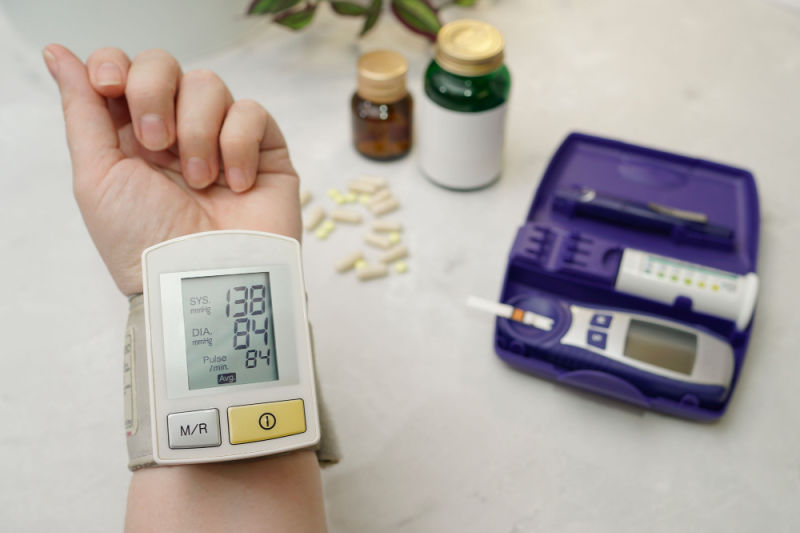Many people have a sweet tooth and enjoy chocolate or sweets after lunch and dinner. However, the refined sugar in these foods comes with many disadvantages, including weight gain, tooth decay, and rising blood sugar levels. Sugar is harmful for people with diabetes because they have to keep their insulin levels under control and watch their weight to prevent other health issues. Many people with diabetes, however, have sweet cravings but deprive themselves of such food to avoid the risk of getting sick. There is a safer option that people with diabetes can choose: sugar substitutes that don’t raise blood sugar levels and reduce sugar without medication. These sweeteners taste similar to sugar and give people with diabetes the chance to enjoy their desserts safely.
What you need to know:
Different types of sweeteners
 Sugar substitutes for people with diabetes can offer the taste of sweetness while limiting carb intake and blood sugar levels. While you can choose from several natural sweeteners, most of them are not free of calories. Most sugar substitutes for people with diabetes are of two varieties:
Sugar substitutes for people with diabetes can offer the taste of sweetness while limiting carb intake and blood sugar levels. While you can choose from several natural sweeteners, most of them are not free of calories. Most sugar substitutes for people with diabetes are of two varieties:
- Nutritive sugar: These sweeteners can affect your blood sugar and contain calories.
- Non-nutritive sugar: These sugar substitutes have no calories; hence, they do not raise blood sugar levels. These taste sweeter than sucrose (table sugar).
Safe natural sweeteners for diabetics

Here are some of the sugar substitutes for diabetics:
- Stevia:
Stevia is extracted from the Stevia rebaudiana plant, is safe for people with diabetes, and is 250-300 times sweeter than sugar. The plant extract is made into a powder that can be used like sugar. Alternatively, the leaves can be used directly from the plant to sweeten a cup of tea or coffee.
- Coconut Sugar:
Made from coconut tree sap, coconut sugar has a low glycemic index score, so it does not suddenly increase blood sugar. Also called coconut palm sugar, it is a safe, natural sweetener for people with diabetes. The sugar crystals are a golden-brown colour and look a lot like raw sugar. Coconut sugar contains iron, calcium, potassium, zinc, antioxidants, and fiber. With coconut sugar, people with diabetes can enjoy their sweets and get an added boost of minerals.
- Xylitol:
Xylitol is a sugar substitute found in many fruits. It has 40% fewer calories than sugar and doesn’t cause a blood sugar spike. Xylitol is most commonly used as a sweetener in sugar-free chewing gums and toothpaste. Apart from not causing a rise in insulin levels, it also does not cause tooth decay like sugar, making xylitol good for health and strong teeth.
- Monk Fruit Extract:
Monk fruit is a type of melon. The extract from the dried fruit is a diabetic-safe sweetener. Monk fruit extract is 100-250 times sweeter than sugar and is a good all-natural substitute for sweets, desserts, and beverages. Desserts like kheer or halwa can use monk fruit extract and taste great and also help deal with chronic health issues.
- Dates:
Dates don’t cause insulin or blood sugar spikes and can be used in a variety of sweets and desserts as a substitute for sugar. Dried dates can be used directly to sweeten desserts by soaking and blending. In this way, diabetics can have an unprocessed sweetener that is high in fiber and nutrients.
Sugar substitutes for diabetics can make it safe to satisfy sweet cravings, and family and friends can also enjoy the benefits of low-calorie sweeteners.
Stay tuned to the Activ Living Community. Keep up to date with the latest health tips and trends through expert videos, podcasts, articles, and much more in nutrition, fitness, mindfulness, and lifestyle conditions like Asthma, Blood Pressure, Cholesterol, and Diabetes.
Popular Searches
How to lower blood pressure | Fruits good for liver | Unhealthy foods | Ragi Benefits | Basal Metabolic Rate | Acupressure points for High Blood Pressure | Ayurvedic medicine for blood pressure | How to control cholesterol at home | Homeopathy for Asthma | Biological Age | Home remedies for TB | Natural beta blockers | Negative effects of internet | Types of walking | Blood pressure calculator | Blood sugar calculator | BMI Calculator
You may also be interested in the following blogs:
- Measure Your Cholesterol Levels Regularly To Improve Your Heart Health
- Control Your Cholesterol. Know How You Can Reduce LDL Cholesterol Levels





 1800-270-7000
1800-270-7000









